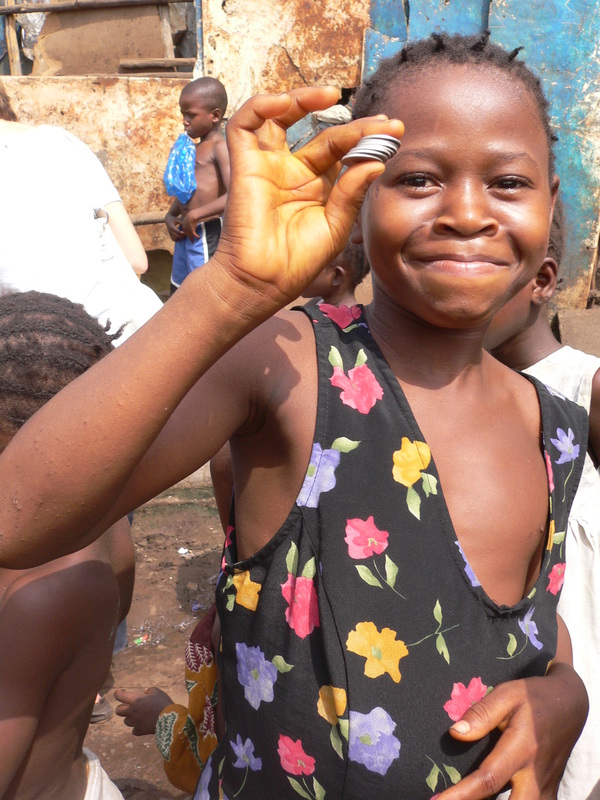This picture was taken in Sierra Leone, West Africa, shortly after the war and thus almost ten years before the Ebola crisis. It shows that in some cases, money can actually make people happy. The reverse is also true: lack of personal income and a stable economic and political system can make a lot of people unhappy. However, this is only part of the picture. |
So why are we so firmly holding on to the belief that 1, growth is great and 2, that it helps sort out societal problems? There are many possible answers to this, including the fact that the GDP as a national measure really is quite useful, not least because it facilitates comparison across countries. While not dwelling further on the GDP in this particular blog I would like to talk about what progress and happiness actually mean, and how this relates to politics.
When analysing the concept of happiness is important to distinguish between ‘luck’ as a fleeting emotional peak or coincidence on the one hand, and ‘happiness’ in the sense of contentedness and wellbeing on the other. Researchers also talk about “optimal challenge”, i.e. the best possible use of a person’s interests and skills. Happiness can have many faces: high quality of living, life satisfaction and wealth as well as democracy, freedom, safety, education, and health. And this distinction is key: happiness means different things to different people.
A number of governments, international organisations and other institutions have developed indices to try and measure ‘happiness’ since they have generally subscribed to improving education, health, safety, etc. in their domains. Most of them were inspired by the tiny mountain kingdom of Bhutan which has famously been using its Gross National Happiness index for years. While happiness and social progress are quite complex and thus cannot be reduced to one universally-applicable measure, a number of useful indices exist. To mention only one: it is worth checking out the OECD’s Better Life Index.
The Better Life Index is a web-based interactive tool which allows people to engage in the debate on wellbeing and on what matters most to them. It compares and visualises wellbeing across countries according to individual wellbeing preferences. The Index offers 11 dimensions: community, education, environment, civic engagement, health, housing, income jobs, life satisfaction, safety and work-life balance.
And finally back to the GDP with a quick comment on the GDP vis-à-vis other indices: while a number of people seem to suggest that other happiness-oriented indices should replace it, my view is that, for the time being, we should definitely keep the GDP. Nevertheless, we must add a system for national and global monitoring of happiness and wellbeing which enjoys the same level of priority in financing, tracking and communicating results as the GDP. The latter point is of particular importance since what is not measured cannot be managed and will not be prioritised by politicians. In other words, we desperately need a governance system to consistently measure happiness and societal wellbeing, thus holding decision-makers to account and contributing to societal progress and development. Eureka!


 RSS Feed
RSS Feed